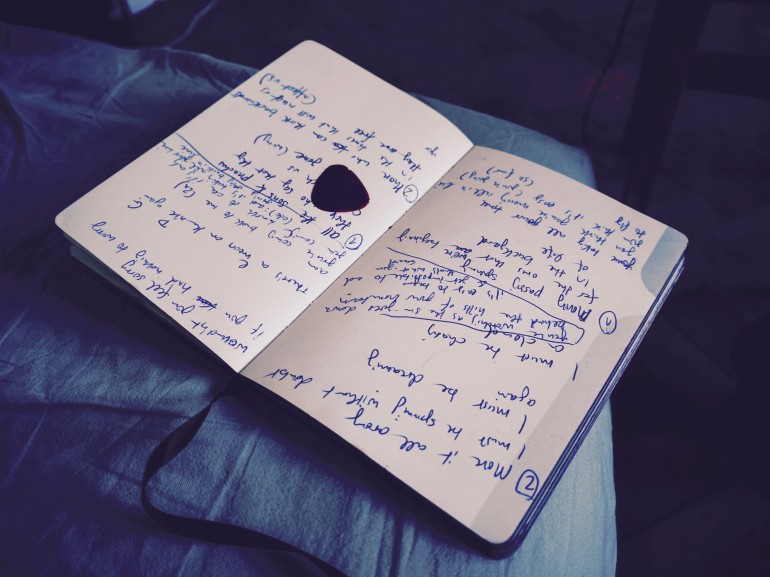Breaking Through Writer’s Block

Confession: I am not a song machine. I was not born with a switch that I can flip to release an unending supply of amazing melodies and lyrics at will. Like all writers, I sometimes experience writer’s block—times when I can’t force myself to write—and times when nothing I write feels good enough. In order to avoid the dreaded blank page I have found myself scrubbing surfaces that had not had an acquaintance with Mr. Clean in decades.
Sometimes we simply need a break. Go for a walk, see a movie, read a book, take a nap, or do anything else that takes the pressure off while your muse enjoys a brief vacation. But being competitive and driven to be successful, I can’t help but think that while I’m having writer’s block another writer down the block is working on a hit. So I do my best to limit my muse’s time off by using these tools to get my creative juices flowing again.
Timed, “No-Critics-Allowed” Writing
Fear is at the root of most episodes of writer’s block—fear that we are inadequate; fear that we’ll never write a great song, or fear that we’ll never write another great song. A good way to work through the fear is to set a timer for fifteen or twenty minutes and write. During this time there is only one rule: no judging—and that especially goes for that nasty little critic who sits on your shoulder whispering all kinds of lies. Remind yourself that no one will ever see or hear what you write during this “safe” session. The goal is not to create something brilliant during this time; it is simply to break through the wall. (Some of my best ideas have shown up during some of these “no-critics-allowed” sessions.)
Set an Appointment
The best cure for writer’s block is writing. Schedule writing appointments with collaborators. Hopefully, you have stockpiled ideas—“song starts”—that you can bring. If you prefer to write solo, schedule a time for that. Mark it in your calendar and honor that appointment as you would any other.
Try Writing in a Different Location
You might stir up some creative juices if you write in a place where you don’t typically work. Try writing at a park, a garden, a coffee shop, a library, or a museum.
Write to a Prompt
Instead of waiting to write until you are inspired, take a leap of faith; start writing and trust that inspiration will find you. In the meantime try some of these prompts. You don’t need to rhyme or think about song structures. The goal is to have fun—not to create a masterpiece—so the pressure is off. If one of these ideas sparks a song, that’s just a bonus.
Write about a color. For example, what comes to mind when you think about red? Do you think about the crimson roses in Grandma’s garden? High heels? The Mustang convertible you lusted over when you were a teenager? Strawberries? A shade of lipstick? By searching online for shades of red lipstick I found “Dragon Girl” (purportedly one of Taylor Swift’s favorites), “999,” “Pirate” and several others that could be hit titles waiting to be written.
Write about a season; a day of the week; a time of day (i.e., 1 AM, just before sunrise, noon) a type of weather (i.e., stormy, steamy, sunny, snowy); or a location (i.e., Venice Beach, Paris, aisle 3 at the grocery store, stuck in traffic on I-65, Pine Lake, waiting in line for a latte).
You might consider combining some of these ideas. For example: “Stormy Summer Sunday,” “When it Snows in Paris,” “Sunset at Pine Lake.”
Writer’s block is part of being a writer. It is inevitable that it will visit from time to time. But with the help of some of these tools we don’t have to let it stay too long.
Jason Blume is the author of 6 Steps to Songwriting Success, This Business of Songwriting, and Inside Songwriting (Billboard Books). His songs are on three Grammy-nominated albums and have sold more than 50,000,000 copies. For information about his BMI Workshops, additional articles, and more visit www.jasonblume.com






Community
Connect with BMI & Professional Songwriters